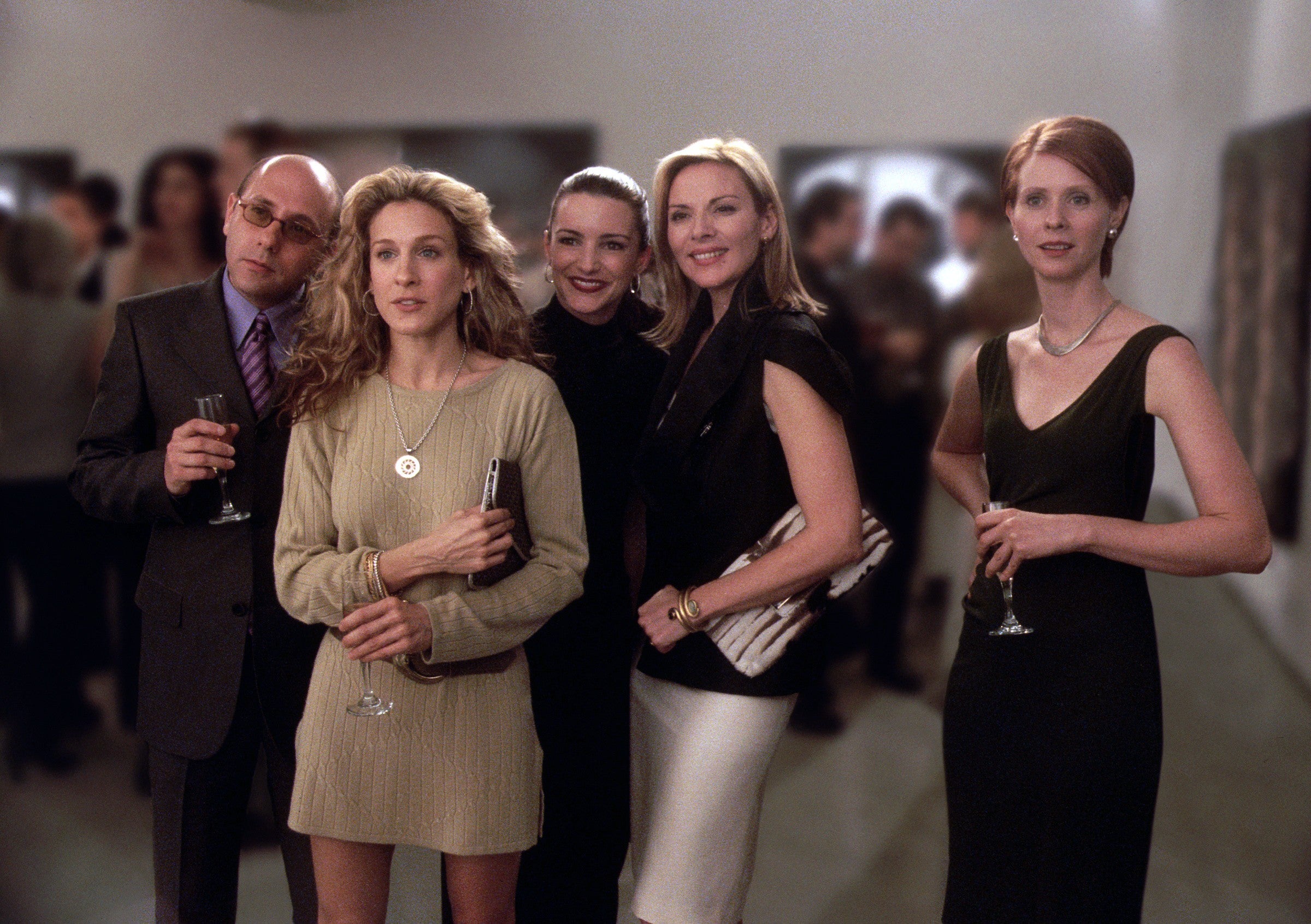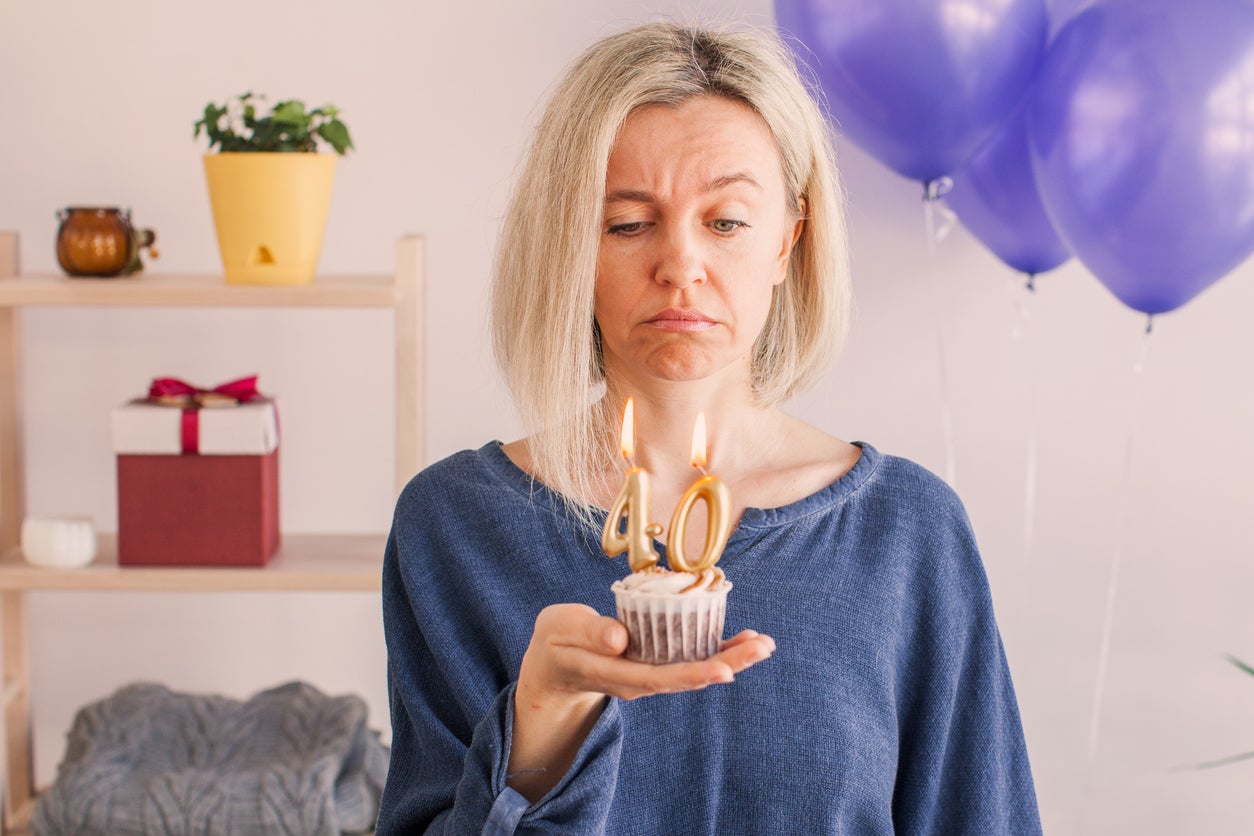I just hit my ‘scary’ age – here’s how to conquer the fear
Getting older may be inevitable, but that doesn’t stop it being terrifying. Helen Coffey asks the experts how we can sidestep anxiety and embrace the future


Carrie’s was 45. Miranda’s was 43. Mine is 37.
The concept of the “scary age” was first officially brought to my attention during an episode of Sex and the City, in which the women discuss the arbitrary number that freaks them out because hitting it will mean they’re really, properly old. But the concept was already all too familiar. Whether we’ve put words around it or not, I believe everyone has both an age that they feel they really are – on the inside – and an age that sends them into a blind panic whenever they think about it. I just reached the latter.
For many, a round number is the one that gets them – the decade markers of turning 30, 40 or 50. I’ve never been scared of those. What, an excuse to have a massive party and spend the entire year celebrating how fabulous you are? Bring it on! No, what’s always sent a chill down my spine is the insidious, under-the-radar threat of 37. It was lying in wait, lurking just around the corner. Until suddenly, it wasn’t. Suddenly, it was here.
Thirty-seven. Ugh. What was the big deal, my friends wanted to know? It’s just a number. It’s not even that old. But that’s not how the scary age works – it may feel arbitrary to others, but to you, it is representative of everything that terrifies you most about facing the realities of adulthood.
This fear is “very natural and very human,” says Jodie Cariss, founder of high-street therapy service Self Space. “We are confronted with the inexorable passage of time and the change it brings, whether we like it or not.”
It’s so entrenched in the human psyche that there are multiple terms for it. “Gerascophobia” – an incessant fear of ageing; “ageing anxiety”; and, seemingly stemming from the same acronym pool as Yolo (You Only Live Once) and Fomo (Fear of Missing Out), “Fogo” – Fear of Getting Old. Why we should be inherently afraid of old age is fairly obvious; aside from the practical changes, it forces us to confront our own mortality.
“Our fear of getting older is close friends with our fear of dying,” agrees Cariss. “As we get older, the reality of our finite existence becomes properly palpable. It causes anxiety and pushes us to sit with existential questions around purpose, legacy, enoughness, and the significance of the mark we’ve made on the world.”

London-based practice City Therapy Rooms highlights the range of anxieties related to getting old, including “the fear of physical decline, loss of independence, social isolation, and death”. It continues: “These anxieties can be intensified by negative societal attitudes towards ageing, such as the idea that ageing is a decline in quality of life or that older people are less valuable or competent.”
Just look at Bryan Johnson if you want to see the human embodiment of this fear. The 45-year-old American entrepreneur’s death denial is so strong that he’s spending millions of dollars a year in his unhinged quest to reverse the physical ageing process and revert to being an 18-year-old.
However, the scary age is less about getting old than getting older. For me, it’s always been the age by which I should have miraculously transformed into a real, functioning grown-up, with my life completely “sorted”. This ranged from small things – by 37, I would be the kind of person who meal-plans and batch-cooks on a weekly basis, never runs out of clean pants, and spends Saturday mornings doing pilates rather than nursing a hangover while shrivelled on the sofa watching Gossip Girl – to the bigger life goals.
By 37, I naively assumed I would have a car (and the ability to drive it); a dog; a husband; kids. None of those things are even remotely on the horizon.
You don’t need to rush to pull together a life that resembles some other person’s idea of how a thirtysomething should live
“For so many people within my clinical practice, at around 30 years old, buying a home or having a baby are no longer distant things they might want to do one day when they have the time or money – they become achievements that they feel like they need to have nailed yesterday,” says Cariss. “They’re fuelled with urgency, panic, and often paralysing fear that they will be left behind as all their friends march down the cobbled street to adulthood while they watch from their Instagram feed.”
But, she stresses, age really is just a number, and locking down perceived “milestones” neither guarantees that you’ll feel like a fully fledged adult, nor that you’ll be happy.
“As real as the pressure can feel, it is important to remember that you don’t need to rush to pull together a life that resembles some other person’s idea of how a thirtysomething should live,” advises Cariss. “It is OK to challenge the narratives that are assigned to us at such early ages. For example, culturally, we view property ownership as a maturity ritual. But this maturity-related high wears off quickly – ownership or the accumulation of things doesn’t equal happiness.
Marriage isn’t necessarily a sign of maturity, or a shortcut to stability. Having a baby doesn’t make you a mature grown-up, just as not having a baby doesn’t make you an irresponsible slacker.”
What has always spooked me so much about 37 is that it feels like the last-chance saloon. There’s just enough time, if I walked out of the house right this second and met the perfect potential romantic partner, to secure the lofty life goals – marriage, babies – according to a conventional timeline I’ve been brainwashed to hanker after since childhood. You’re running out of time! shrieks the banshee-like voice in my head. This, despite the fact that I’m not even sure if I want those things.

Cariss advises circumnavigating this Fomo-related Fogo by removing the weight of expectation. “These ages can look however you want them to,” she says. “We need to challenge the idea that we need to be a home-owning, child-rearing, dog-walking, married person to be happy, successful and fulfilled.”
When I actually pause to reflect, I’ve accomplished plenty of the more momentous aims from my own personal tick-list: I bought my first home and achieved my lifelong dream of moving to live on the coast. I have my dream job. I’ve run three marathons, had a book published, taught myself to play the ukulele and written songs of which I’m proud. It’s not such bad going.
It’s vital, too, to wrestle with the feelings your scary age brings up, head on: “Don’t distract yourself from the fear. Savour awareness. Lean into it. Pause as you stare into the photograph of the younger you. Let these moments seep over you and linger – and be with the sweetness and bitterness of it all.”
Pause as you stare into the photograph of the younger you. Let these moments seep over you and linger – and be with the sweetness and bitterness of it all
But really, the best thing we can do to tackle our fear of ageing is living and loving to our fullest capacity. “Value life, feel compassion for others, love everyone and everything with the greatest depth you can,” urges Cariss. She quotes the famed existential psychiatrist Irvin Yalom, who asks: “Would you be willing to live this past year again and again for all eternity? If not, what would you change? Change it now.”
And, honestly, there’s not much I would change. I look back on this year and see a life brimming over with friends and family; sea swims and beach yoga; rambles and Sunday roasts; after-work pints and drunken snogs; decadent meals out while dressed in over-the-top outfits; dancing in the middle of the street and screeching Kate Bush down the mic at karaoke; bingeing Netflix series and ordering takeaways just because I can. I wouldn’t mind doing that all over again.
In fact, if my “inside age” self – perpetually stuck at 27 – could see my life right now, I’m pretty sure she’d think it more bloody cool than blood-curdling. Take that, 37: I’m going to keep ageing disgracefully, and there’s nothing you can do about it.
Join our commenting forum
Join thought-provoking conversations, follow other Independent readers and see their replies
Comments